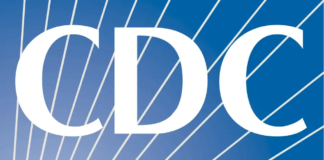
In Washington state, the number of new cases of hMPXV, also known as MPV or monkeypox, has been gradually decreasing since mid-August. While MPV is still considered a rare viral disease, especially compared to COVID-19, there are real risks associated with the contraction of MPV.
People who are at increased risk to experience serious illness include children under the age of 8, those who are immunocompromised, those with a history of eczema, people with advanced HIV or who are not taking antiretroviral drugs, and people who are pregnant or breastfeeding.
“The [Washington State] Department of Health reports that 564 people have had confirmed MPV infections, with 450 of those people residing in King County,” Eleanor Wade, assistant director for Campus Preventive Health, said. “Fifteen people in our state have been hospitalized and there have been zero deaths attributed to the disease.”
MPV often begins with flu-like symptoms, including fever, headache, muscular aching, swollen lymph nodes, and exhaustion. The symptom that next occurs may be a blister or pimple-like rash.
Anybody can become infected by MPV, regardless of their sexual orientation or gender identity. Among those prioritized for vaccinations are gay and bisexual men, or other people assigned male at birth who have sex with men, including nonbinary, genderqueer, and transgender people.
Seattle’s LGBTQ+ Center (formerly Gay City) has provided a wealth of resources and support in the form of pop-up vaccination clinics, held roughly every other week, with their onsite pharmacy partner Kelley-Ross.
“It’s not a sexually transmitted disease,” Bekah Telew, co-executive director at Seattle’s LGBTQ+ Center, said. “I think that that’s an important part of shifting the shame and stigma … encouraging consent-based, honest conversation with people is always going to be the best thing that we can do to have control of our own health and wellness in general, and I think that that’s true of MPV as well.”
Direct, skin-to-skin contact with any rash, scab, fluid from sores, or saliva in any context is the fastest way infection spreads. It is unlikely that MPV spreads in a classroom setting. If you experience any of these symptoms, it is best that you avoid sex or other close contact with others until you have been evaluated. Rashes should be covered, and any gatherings where skin-to-skin contact is likely should be avoided. All partners should be notified.
“When [clients] come into this space, all we want is to create a safe and affirming space for people to be their full and authentic selves,” Telew said. “MPV is just a piece of our holistic health.”
The Public Health Sexual Health Clinic at Harborview Medical Center provides walk-ins and appointments for vaccinations, subject to availability.
Students who live in a UW residence hall or believe that they have contracted MPV in a UW-related setting are asked to notify the university at covidehc@uw.edu. Call (877) 520-7770 to schedule an appointment with UW Medicine for MPV testing, treatment, and vaccination for those eligible.
Reach reporter Taija PerryCook at news@dailyuw.com. Twitter: @taijalynne
Like what you’re reading? Support high-quality student journalism by donating here.








